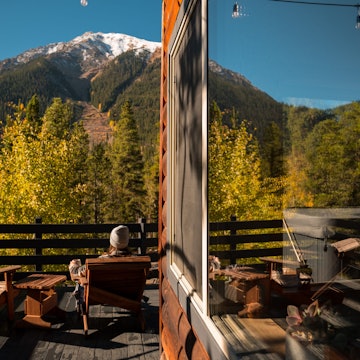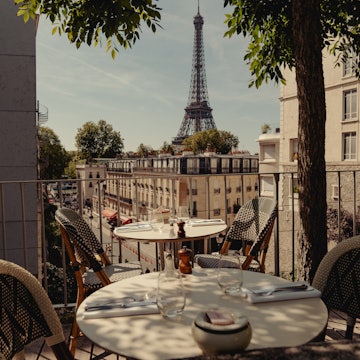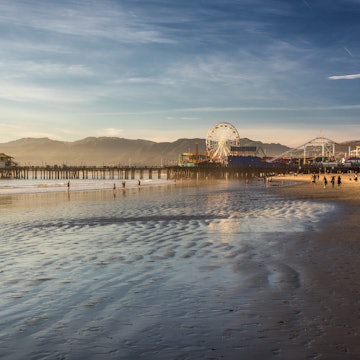

Many hotels now require additional time before check-in to allow for a deep COVID clean. ©Michael Heffernan/Lonely Planet
Let’s start with a disclaimer: however good a hotel or a letting company’s cleaning guidelines are, they still need to be put in place on an individual basis. In other words, it’s a big world - though not currently as big as it usually is - and making generalisations is difficult.
The effort required by individual properties to be as visibly hygienic as possible should be a win-win-win though. The good name of the establishment is preserved, as is that of the company, and the guest receives a safe and relaxing stay.

Hotels, on first glance, offer more obvious hazards than self catering properties - especially if the latter has been empty for a few days and thoroughly cleaned. The fewer people you’re in contact with indoors, the lower the chances of catching COVID-19. Hotels, especially larger ones have lobbies, lounges, lifts, bars and places to eat. And, as part of reopening precautions worldwide hotels like all businesses have had to adapt. See Marriott’s COVID cleanliness FAQs for an example. WHO and CDC guidelines will also give you an idea of the type of measures being recommended and taken.
Many communal spaces in larger hotels now have restrictions on numbers or are closed, either to non-guests or altogether. Areas where the mingling takes place will generally have access carefully managed and be more frequently and visibly cleaned than they were before. Some steps taken, such as lounge closures, may be to reduce costs as much as to prevent virus transmission. Others will be familiar to us all including social distancing, moving guest services online to minimise contact and requiring face masks in communal spaces. Do ask questions: if you want to know more about an individual establishment contacting the General Manager before travelling is a good next step. As with a hotel’s approach to environmental issues like recycling and water management, the degree of engagement you receive when you ask is a good indicator of the seriousness with which these matters are dealt with.

Airbnb and similar services have also, unsurprisingly, been working hard with hosts to meet the expectations of post-COVID travel. Hosts who commit to Airbnb’s Enhanced Cleaning protocol have this flagged up in search results. In other cases, hosts can opt for a booking buffer to leave a property vacant for 72 hours.
Where Airbnb also scores high is the ability to quickly forge that direct connection between the customer and host. Not only can you see what guidelines are in place, but you can check and double check to your heart’s content via messages before you book. Two hosts I spoke to said that while some guests are asking their own questions that are already covered by these protocols, most are trusting that the measures put in place will be effective.

Ultimately this comes down to how comfortable you are with the risk of travelling. If you’re prepared to get on a train to travel to an airport, then pass through communal spaces to get on a plane and then be in a different country then you’ll probably be comfortable staying in either a hotel or an Airbnb. There are certainly good last minute deals in both accommodation sectors and flexibility in booking.
You might also like:
Why I am homesick for hotels
Airbnb wants to help travelers see lesser-visited national parks
Here's what New York City might look like after the pandemic
Book a stay at The Fresh Prince of Bel Air mansion in LA














